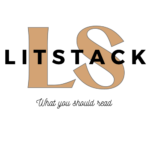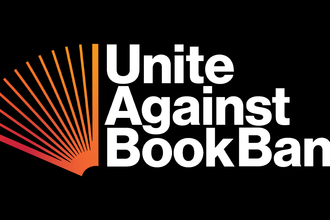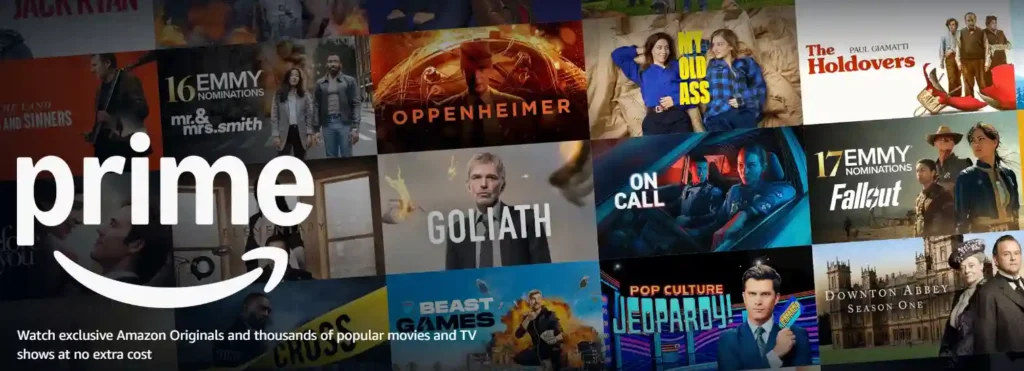LitStack is honored to do its part to support Banned Books Week by bringing you this article Knowledge Thieves | Book Banning Extremists Are Extorting America’s Public Education System by LitStack founder, Tee Tate.

In This Article:
An Agenda of Separation
Throughout the United States, book banning extremists are executing coordinated raids on knowledge and education with the mission of erasing our country’s true cultural makeup and history, and thereby halting the possibilities of equal rights and social justice. This extremist, book banning movement has metastasized in the form of groups such as, among others, Moms for Liberty (“MFL”). MFL was listed as an extremist group by the Southern Poverty Law Center in its 2022 Year in Hate & Extremism report, and is under surveillance by the Bridging Divides Initiative (BDI) for showing up at school board protests with other groups that have explicitly advocated or committed intimidations and violence, including in North Carolina where MFL showed up with Proud Boys.
MFL and other organizations like it claim to champion parental rights within schools and the political sphere. However, they appear to spend the bulk of their energies and funds removing and banning books that discuss racial and gender equality, as well as books they believe deviate from white, Christian fundamentalist beliefs. These book banning groups seem bent on influencing and misshaping school curricula to fit a separatist agenda by gaining seats on school and library boards, with hefty monetary support from conservative politicians and political action committees.
The Trouble With Interference
Parental meddling and book banning in school curricula is nothing new. It has been a consistent fact over the decades. Since the 1950s, parents have expressed concerns on a variety of issues, such as the teaching of communist ideologies and the challenges of desegregation, as documented by the Associated Press. There was a significant uptick in private school enrollments following the ratification of the 14th Amendment. The preference for segregation, whether it pertained to race or religion, contributed to the conservative shift towards homeschooling in the early 1990s, coinciding with the introduction of sex education into the curriculum.
Presently, rather than turning to homeschooling, parents, often bolstered by rhetoric from organizations like MFL and their political counterparts, appear to be engaging in actions that isolate marginalized groups and foster an environment of exclusion among students.
Part of this interference has shown itself in book banning behavior that has reached beyond school curriculum into public libraries with the help of extremists in the Republican party. Across the country, many MFL groups, funded by GOP organizations and political action committees, have pitched to voters the evils of rising taxes that fund our public libraries, taxes that have typically been on community books for decades. The impact of this tactic and MFL’s zealous rebukes of certain “unsavory” titles, has, probably intentionally, created and inflamed divisions in school systems, among parents, students, educators and politicians.
Book Banning and Public Outcry
A 15-year-old student named Kierran reflects on book banning after reading the graphic novel “Maus” by Art Spiegelman, a retelling of the Holocaust as seen through the eyes of a mouse, that was banned by a Tennessee schoolboard for unnecessary use of profanity and nudity and its depiction of violence and suicide:
“You’re stealing knowledge. Why would you want to steal knowledge?”
Paramount’s 2023 documentary, “The ABCs of Book Banning,” (streaming on Paramount+) takes a concise look at the repercussions of book banning on children and their resulting frustration. The film’s producers provided each interviewee, the oldest being sixteen, with a challenged or banned book to read and then recorded their reactions. Surprisingly, none of the students complained; instead, they seemed baffled by the reasons behind the book banning.
The documentary highlights book banning of works like:
- Meena Harris’s (niece to Vice President Kamala Harris) “Ambitious Girl,” which empowers young girls (challenged in Florida without specific reasons);
- Amanda Gorman’s “The Hill We Climb” recited at President Biden’s inauguration (banned in Florida for alleged “hate speech” and “indoctrination”); and
- “And Tango Makes Three” by Peter Parnell and Justin Richardson, illustrated by Henry Cole, that depicts a same-sex penguin couple raising a hatchling (a book banned in various states for portraying same-sex relationships in a G-rated manner).
These banned books represent marginalized groups—girls, women of color, and same-sex couples—and were targeted for book banning for not conforming to the straight, white, Christian norm, leading to a collective detriment for all students. The documentary suggests that certain libraries and school boards are directly responsible for book banning and its aim to stigmatize diversity.
Book banning is theft, a ransacking of diversity and inclusion, and it has many speaking out.
True Agents Of Liberty
“This movement of attacking and falsely accusing educators is based in part on the push for charter schools, where already rich investors will only get richer, and politicians can push their own authoritarian agendas”
Amanda Jones, the 2021 School Library Journal Librarian of the Year, who works at a middle school in my hometown, established an outstanding 24-year career as a school librarian known for acquiring grants and maintaining positive relationships with her students and their parents.
But as she outlined in “That Librarian: The Fight Against Book Banning in America” (her 2024 memoir), after her impassioned speech in a local library control meeting in response to vague concerns about young adult and children’s books went viral, she received death threats, and was doxed, and had to fend off online harassment accusing her of being a pedophile and a groomer. She also, fortunately, received celebrity support from Oprah Winfrey who praised Jones for standing up for “our right to read.”
I asked Jones what had been most shocking to her about this experience:
What surprises me the most is the willingness of people in the community to believe anything and everything they see on the internet and social media and run with it. The lies being told about our libraries are easily debunked if they visit libraries and schools and ask questions. Library catalogs are all online, both in schools and at public libraries, and all they have to do is look. Community members often see pages out of context, and believe [when] they are told that sexually explicit materials are in children’s sections of libraries, and just run with it. This is being fueled by politicians who seek to swoop in to save the community from problems that don’t exist in order to pander for votes.
~ Amanda Jones
Amanda Jones continues to persevere. She keeps fighting book banning, working with the Livingston Parish Library Alliance and the Louisiana Citizens Against Censorship (“LCAC”) to cull the interference state government has tried to play in libraries. LCAC effectively blocked seven out of nine anti-library bills in the June 2024 legislative session. Jones’s memoir chronicles her ongoing legal pursuit against her online harassers, seeking a nominal compensation of $1 and a public apology. The case is currently pending approval from the Louisiana state supreme court. But her concern goes beyond book banning.
As a parent myself, I believe in parental rights and the rights of parents to have a say in their child’s education. I have always strived to build a solid relationship of open communication with parents and families. What we are seeing happen, however, is organizations like Moms for Liberty and our local politicians using educators for political gain. They insist that public educators and librarians have hidden agendas of indoctrination, when in fact, we would love nothing more than for parents to participate and work with us. We have nothing to hide and go into our professions wanting to help children, families, and our communities.
I do not think that this will result in the elimination of the American public school system, but we will see educators leave in droves because they are tired of being society’s punching bags.
~ Amanda Jones
Mass Exodus?
It’s not an outlandish thought.
In 2022, the First Annual Merrimack College Teacher Survey revealed that only 12% of educators were satisfied with their jobs, with over 40% saying they were very or fairly likely to leave the profession within the next two years (edweek.org).
Louisiana (the State where I live and raised my daughters), is ranked #42 in the nation for education and appears to be heading in the same direction as Texas and Florida, where local politicians have been insinuating their extremist beliefs in the classroom frequently. Shortly after Louisiana governor Jeff Landry assumed office in January 2024, he signed a directive to display the Ten Commandments in classrooms without voter approval. He also issued an executive order to ban critical race theory courses in public schools. Jones may be right in suggesting that politicians are paving the way for a surge in charter schools, and with the recent flurry of conservative mandates, it’s difficult to disagree with her.
Who Book Banning Hurts
“All libraries, especially school libraries, have a duty to represent all people.”
Like Amanda Jones, New York Times bestselling author Ellen Hopkins, is no stranger to debates over book banning, though the works under scrutiny are often her own. Hopkins is a powerful writer who transforms trauma into poetry, drawing from her own life and memories to create stories that tackle LGBTQIA+ issues, teens in crisis, abuse, assault, and addiction, all in beautiful prose that resonates with readers.
According to Hopkins’ website, all fourteen of her young adult titles have been “removed from school, and in some cases, public libraries in some parts of the country.” Hopkins believes there’s a larger agenda at play—one that harms not only her readers but the broader public. In a blog post for the ACLU South Carolina, Hopkins wrote that most book banning efforts are part of “a well-funded political drive to cripple public school education and stall or eliminate this country’s forward movement toward true equal rights for all its citizens” (aclusc.org).
What seems to trouble Hopkins most, however, is not just the banning of her books, but the broader issue of misdirection and the lack of representation for all students and patrons:
Every person has a right to see him/herself on the page, or to learn about others. Humanity is a vast spectrum of races, genders, sexual identities, and belief systems, and we are all better for opening our arms, hearts, and minds to people unlike ourselves. Those who refuse to, miss so much, and books can open our eyes to beauty and wonder we might otherwise miss. No one person or handful of people should be allowed to decide the value of a book or what is represented inside.
~ Ellen Hopkins
Classrooms Post Book Banning
If parent organizations, backed by conservative politicians and political action committees, succeed in reshaping school curricula, what will it mean for students whose cultures and identities are erased by book banning targeting marginalized groups or topics deemed “inappropriate”? And if this book banning becomes a customary part of the curriculum, what happens to the children who aren’t represented and can’t see themselves in the history or literature they’re allowed to study?
With the increase of curricula authored and mandated by legislatures who ban books that help students understand their true selves or the strengths inherent in our unique differences, how does the public school system reconcile this narrowed perspective with a commitment to provide comprehensive education? The answer is simple: it cannot. If inclusion and comprehensiveness cannot be achieved, we are left with exclusion and oppression.
As a mother to a queer daughter, and a grandmother to a child in a same-sex household, as someone who cherishes individuals from all backgrounds, with a heritage enriched by diverse cultures globally, and as a descendant of people who were present at the Pilgrims’ landing and even those who arrived before the Mayflower, I am driven to address matters affecting the freedoms of all communities, especially those whose voices have been historically oppressed.
When education is confined to a single, separatist perspective, particularly one that is government-mandated through political extortion, it breeds a dangerous conformity rather than freedom. This strays far from the ideals and aspirations envisioned and enshrined by our nation’s founders. In a society where questioning the norm is sometimes viewed as unpatriotic, the push for conformity and book banning raises questions about those who claim patriotism yet trample upon the very principles that are the foundation of our nation. The rights to life, liberty, and the pursuit of happiness are promised, but the current onslaught of book banning begs the question: according to whose oath?
When schools and libraries are turned into battlegrounds and stripped of the merits and promise of comprehensive learning and knowledge, then trust in education is killed.
Once dead, it is unlikely to be revived.
Think, speak, and vote accordingly.
~ Tee Tate
About Tee Tate
Tee Tate (she/her) is an editor and writer from southeastern Louisiana, a region originally settled by the Choctaw and Coushatta indigenous nations. With extensive experience working alongside New York Times bestsellers and self-published sensations, Tee blends her editorial expertise with a deep passion for storytelling. Committed to social justice and amplifying marginalized voices, her writing is rooted in these values. Currently, Tee is crafting an epic fantasy multiverse that combines the sharp female perspective of Margaret Atwood, the clever, adventurous spirit of Indiana Jones, and the intricate world-building of The Wheel of Time. She offers freelance writing and editing services through her website or professional platforms.
Tee Tate is also one of the founders of LitStack (2011) and has many reviews and articles on the site, and continues to write important articles such as this one for the site. Thank you, Tee!
Books from this Article
We encourage you to buy the books cited in this article at the following links:
Help Fight Book Banning and Censorship
Join Unite Against Book Bans
Join Unite Against Book Bans (“UABB”), a national initiative to empower readers everywhere to stand together in the fight against censorship and book banning. Share resources from the UABB Action Toolkit with your community and help defend the right to read.
Pledge to Vote
Pledge to vote on November 5th in Election 2024 – Take the Pledge and get involved in helping to stop book banning using the voter’s checklist.
Team Up With The American Library Association

Team up with the American Library Association (“ALA”), Banned Books Week, ala.org/bbooks
Other LitStack Resources
As a Bookshop, Malaprop’s, BAM, Barnes & Noble, Audiobooks.com, Amazon, and Envato affiliate, LitStack may earn a commission at no cost to you when you purchase products through our affiliate links.
You can find and buy the books we recommend at the LitStack Bookshop on our list of LitStack Recs.












